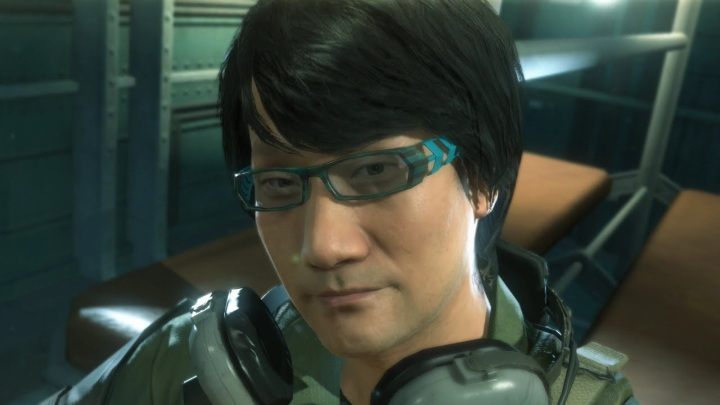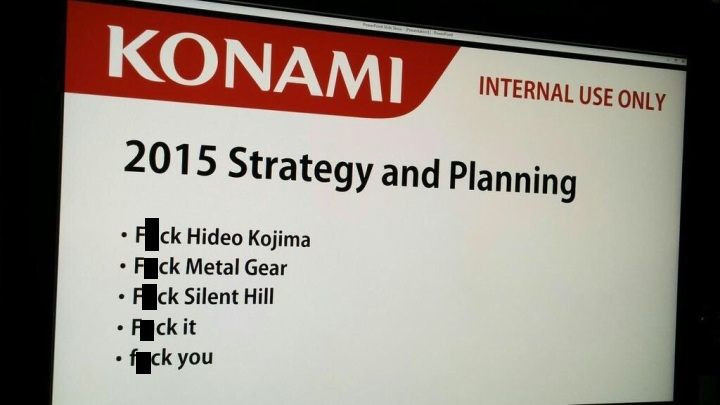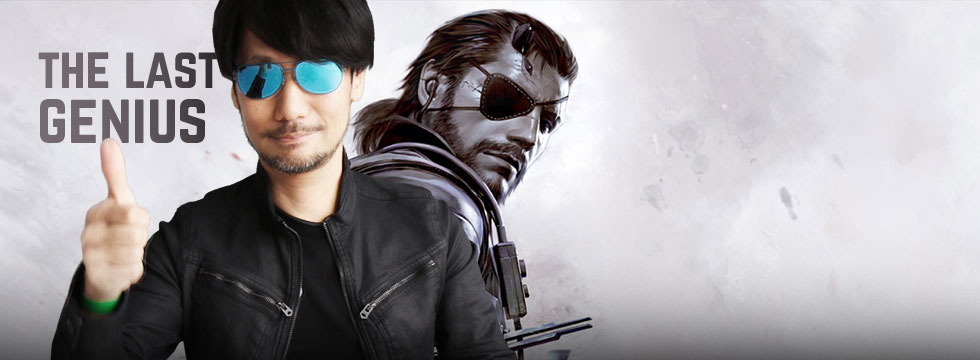How Hideo Kojima Brought Hollywood to Video Games?
An unfulfilled filmmaker, a visionary, a showman who loves to tease players, a victim of the biggest industry scandal of 2015, a man who receives dedicated trailers. Hideo Kojima has many faces, but is he also our savior and deliverer?
Table of Contents
- How Hideo Kojima Brought Hollywood to Video Games?
- The pink eighties
- Somebody stop me, or I'll end this series!!!
- Trouble in Paradise
- New beginnings
Trouble in Paradise
With a strong position in Konami, Hideo Kojima wanted to take his games with the fans even further. Metal Gear Solid V: The Phantom Pain (the game that was supposed to be, of course, the last installment of the series, and ironically, it actually was – not by Hideo's decision) was first announced at the Spike Video Game Awards in 2012, as a brand new IP, The Phantom Pain, supposedly created by a Swedish studio Moby Dick. Fans of MGS delivered – based on the few hints, they discovered that the game is neither a new IP, nor developed by Swedes, and that it's just the good old Kojima taking them for a ride again.
Silent Hills, on the other hand – the new installment of the withering, yet still classic series that was given to Kojima, was announced with a release of a mysterious demo of a horror entitled P.T. Finishing it – which wasn't at all simple without the solution, wasn't easy, and revealed that in reality, it's just an announcement of the new project of the creator of Metal Gear, and at the same time, a new game in the Silent Hill universe.

However, with only a few months left before the release of The Phantom Pain, unsettling reports began to leak from Konami. We didn't believe them at first. It seemed impossible that the man who was, for all intents and purposes, the face of the Japanese company, could be fired from it. However, not much time passed; in 2015, we received confirmation of this information. Kojima was not only dismissed – his team was disbanded, and Silent Hills – deleted, and to add insult to injury, the bizarre decision was taken to also delete all the information about his participation in previous productions. The 30 years that Hideo Kojima spent in Konami, was suddenly blown into smithereens.
The unclear nature of these events led to many people to consider them just another elaborate artifice from Kojima – a shocking advertising campaign for MGS-V from the man who likes manipulating the emotions of the fanbase. Even today, four years after the whole thing, when Kojima is close to finishing his new game in his own studio, there are still plenty of people believing that this is all part of some extremely complex advertising plan for Death Stranding. The years of deception taught players prudence and distrust, making them keen on looking for conspiracies and a larger plan in everything Kojima does.
PERSONAL LIFE
Although Kojima is a true celebrity of the game world, who on many occasions proved he has the nature of a showman, keeping his private life in secrecy is something he really cares about. We know that he lives in the Setagaya district of Tokyo, has been married for many years and has a child, but the wife's name or even the sex of the child are his secret.

Today, we don't know why Hideo was actually fired from Konami. The most reliable, and perhaps least sensational, theory suggests that it was simply about the money. Kojima wanted to make the Phantom Pain his biggest work and was willing to polish the game as much as possible, sinking untold millions of dollars in the production until the game would simply be unprofitable. The board of the corporation eventually had enough of it. The theory was actually confirmed by Kojima, who, while still working for Konami, casually admitted that
Honestly, I'm going to be targeting a lot of taboos, a lot of mature themes that really are quite risky. I'm not even sure if I'm going to be able to release the game, and even if I did release the game then maybe it wouldn't sell because it's too much. As a creator I want to take that risk.
Hideo Kojima
The famous developer must have known how dangerous his statements and actions were:
I shouldn't say this in front of the people running Konami, but in the future, I'd like to pay less attention to money, demographics, etc. I want to be a free to make the games I've always dreamed of. Creative work often requires considerable investments, but the industry is slowly burning me inside.
Hideo Kojima
An artist confident in his genius, eager to develop uncompromising, timeless games, versus a rapacious board, which is having an increasingly hard time keeping his ambitions in check – it's pretty easy to imagine this conflict. There were also the plausible allegations that the CEO of Konami became spellbound by the mobile games market, able to provide income comparable to AAA games at a much lower cost, and that Kojima just didn't fit into that picture. What's much more surprising were the rumors of the scandalous behavior of Konami's employees, who were allegedly trying to make it difficult for the devs who left along Kojima to find new jobs – it would be bewildering if the people running such a huge company turned out that narrow-minded. Regardless of the reasons for the dismissal, the conflict could certainly be resolved more elegantly.
STAN LEE VS. HIDEO KOJIMA
Looking at the career of the Japanese Creator and his relationship with Konami, it's difficult to shake off the feeling that we've already seen something similar. It's 1939. Stan Lee, a man whose talent would greatly contribute to the success of Marvel and the MCU, is hired in Timely Comics (later Marvel Comics). At first, he's just an assistant, and no one takes him very seriously. Over time – through innovative methods of promotion, given the times and the state of the comics – and against the bosses of Timely/Marvel, he becomes the father of the comics revolution in America.
Stan Lee did this by auto-creation of his own person in the comics (he directly addressed his readers in the introductions and afterword of his books), and the distinctive and recognizable style he adopted. Soon, every fan of Spider-Man or Tony Stark knew who the author of their favorite superheroes was (even though Stan Lee did not draw them himself!). As you might guess, this wasn't very popular with Stan's boss, Martin Goodman. From the published books and biographies so far (including Stan Lee. The Man Behind Marvel) we know that Goodman repeatedly undermined the work of the famous editor, effectively thwarting his plans and forcing Stanley to push his agenda in a less obvious, but not less effective method (e.g. the first Spider-Man comic was "smuggled" in the Amazing Fantasy vol. 1 in 1962, because Goodman did not agree to publish a story about Spider-Man). Such a position of an employee who did not even hold a senior position in the company could not have been pleasing to the superiors. See the resemblance?

